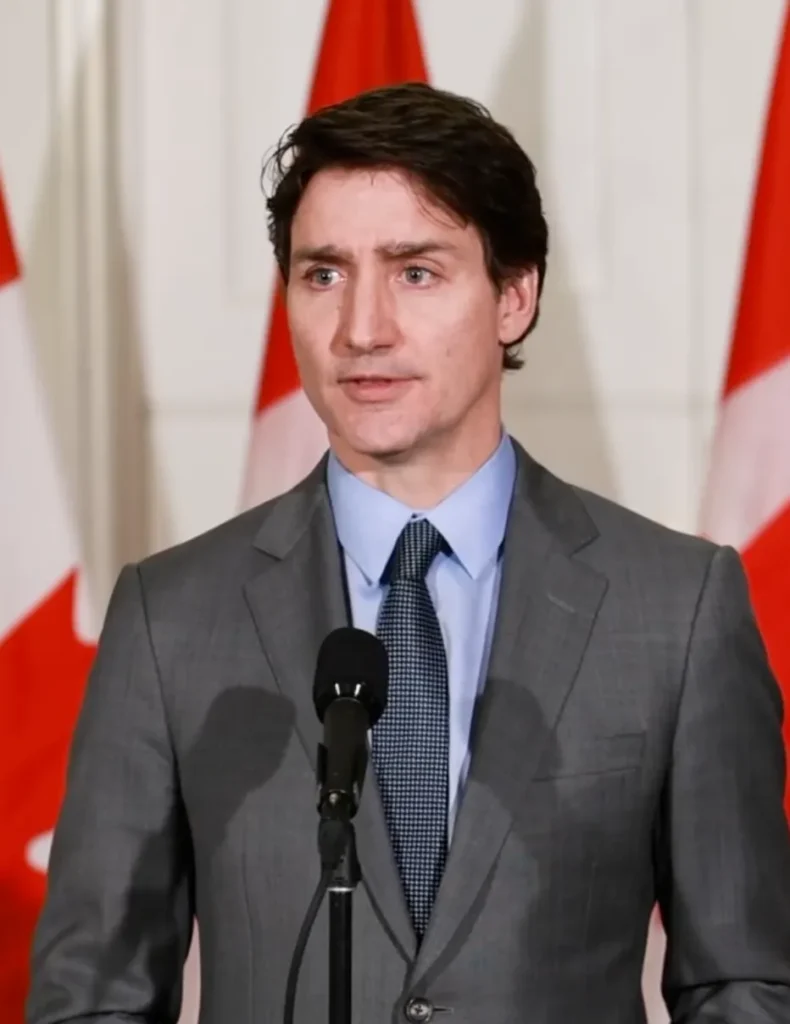
President Donald Trump declared his plan to enforce seismic trade measures by levying a substantial 250% tariff on particular Canadian products prompting intensified worries about a looming trade conflict between neighboring countries.
The strained relations between U.S.-Canada have reached their worst point after several heated policy disputes.
The political connection between President Trump and Canadian Prime Minister Justin Trudeau remains highly conflicted because of their contradicting personal and policy perspectives.
During their contentious recent telephone conversation both leaders demonstrated opposite positions regarding essential matters which included trade agreements and border protection protocols.

Trump’s dissatisfaction with Canada’s trade practices, particularly concerning dairy market access, has been a recurring theme in their interactions.
Prime Minister Trudeau took a more resistant position against U.S. tariffs because public support grew as his popularity numbers dropped.
Canadian diplomacy now follows a new direction which shows Canada is prepared to stand up against U.S. trade measures.
Canada’s Foreign Minister, Mélanie Joly, has articulated profound concerns regarding President Trump’s trade policies, suggesting that they pose an “existential” threat to Canada.

She likened Canada to the “canary in the coalmine,” implying that other nations, particularly in Europe, could face similar challenges in the future.
Joly criticized the unreliable U.S. tariffs which created economic uncertainty because they endangered both Canadian sovereignty and economic stability.
Canadian citizens have become more active because of these tensions by starting anti-US consumer boycotts while terminating their commercial agreements with Americans.
National solidarity solidifies a definitive stance against supposed economic pressure and fighting for national independence.

The tariff policies implemented by the United States have received inconsistent responses from throughout its national borders.
The domestic business sector maintains conflicting views about the benefits of tariffs which provide local companies an edge against imported goods versus their fear of supply-chain problems and cost increases.
Anheuser-Busch benefits from the decreased international competition because the company produces most of its beer inside the United States.
The country-wide economic consequences of rising tariffs create ongoing dispute between leading industry representatives.
Recent trade tensions have indeed produced major political changes across Canada.

During the tariff challenge Prime Minister Justin Trudeau formally declared his departure from leadership which turned into a watershed moment for the Canadian political arena.
During his touching speech Trudeau strengthened Canadian faith in the Liberal Party by pledging to protect their interests while the country faces difficult trade complications.
Trudeau’s decision to step down reflects the profound impact of the trade war, underscoring the far-reaching consequences of Trump’s aggressive tariff policies.
The potential 250% tariff announcement has escalated existing business and consumer uncertainties in the situation.
The implementation of this tariff would impact Canadian exports specifically targeting dairy items and resulting in business consequences for both economies.

Trump supported this new proposed tariff because according to him Canada has maintained unfair restrictions against American good exports for multiple years.
Trump informed reporters that the U.S. could initiate this measure either immediately or delayed the action for Monday or Tuesday.
The tariff fees will match current prices exactly. It’s not fair. The situation was unfair from day one as Canada has treated American farmers improperly.
Canadian trade minister Mary Ng pushed back, labeling Trump’s claims as “not true” and denouncing the proposed tariffs as “completely unjustified.”

“I learned about it just as I was walking into this press conference,” Ng stated. “These tariffs, if imposed in that order of magnitude, are completely unjustified.”
The impending tariffs between nations would fundamentally change North American trade relations while businesses and consumers stand ready to face economic consequences.


